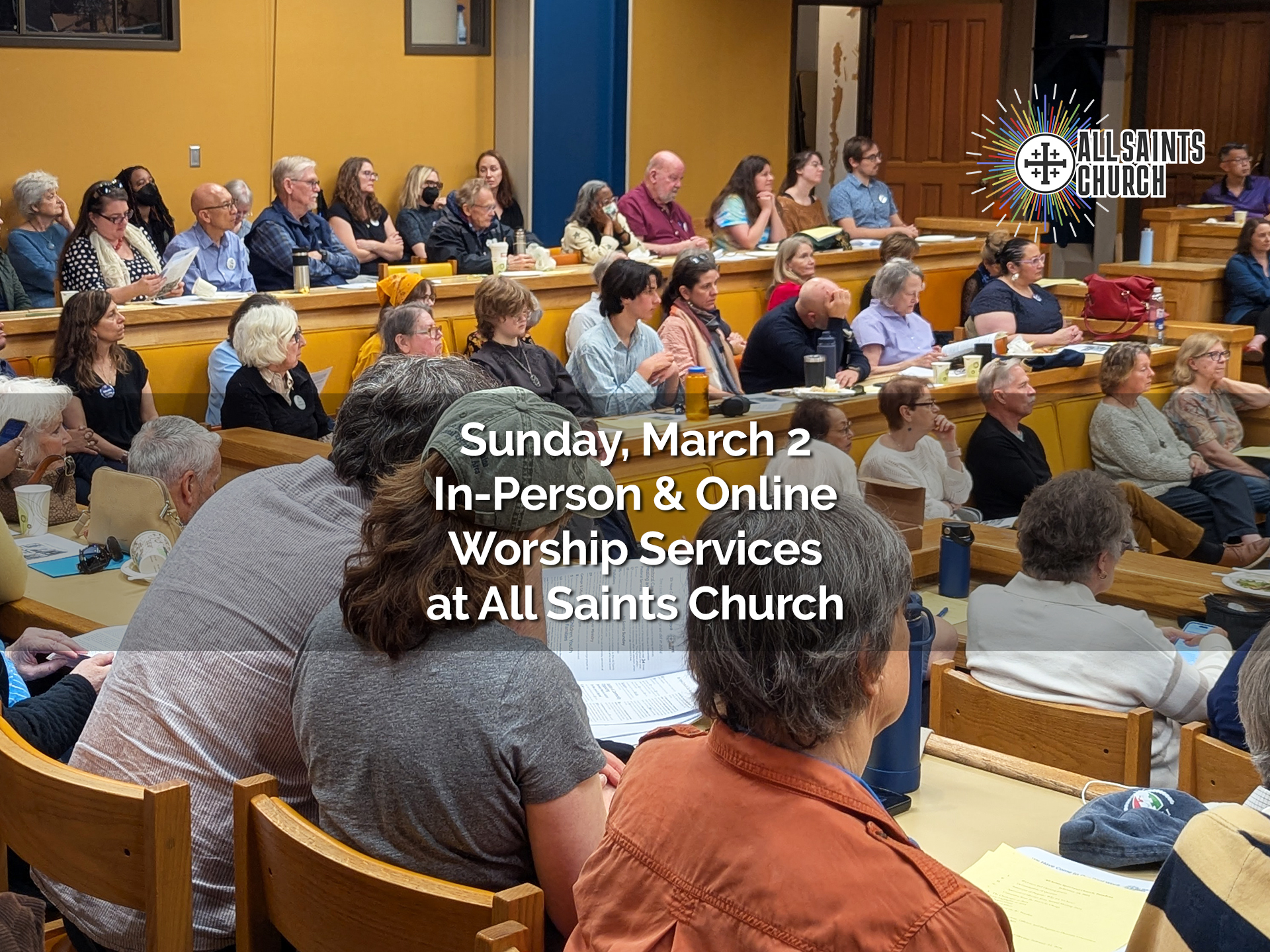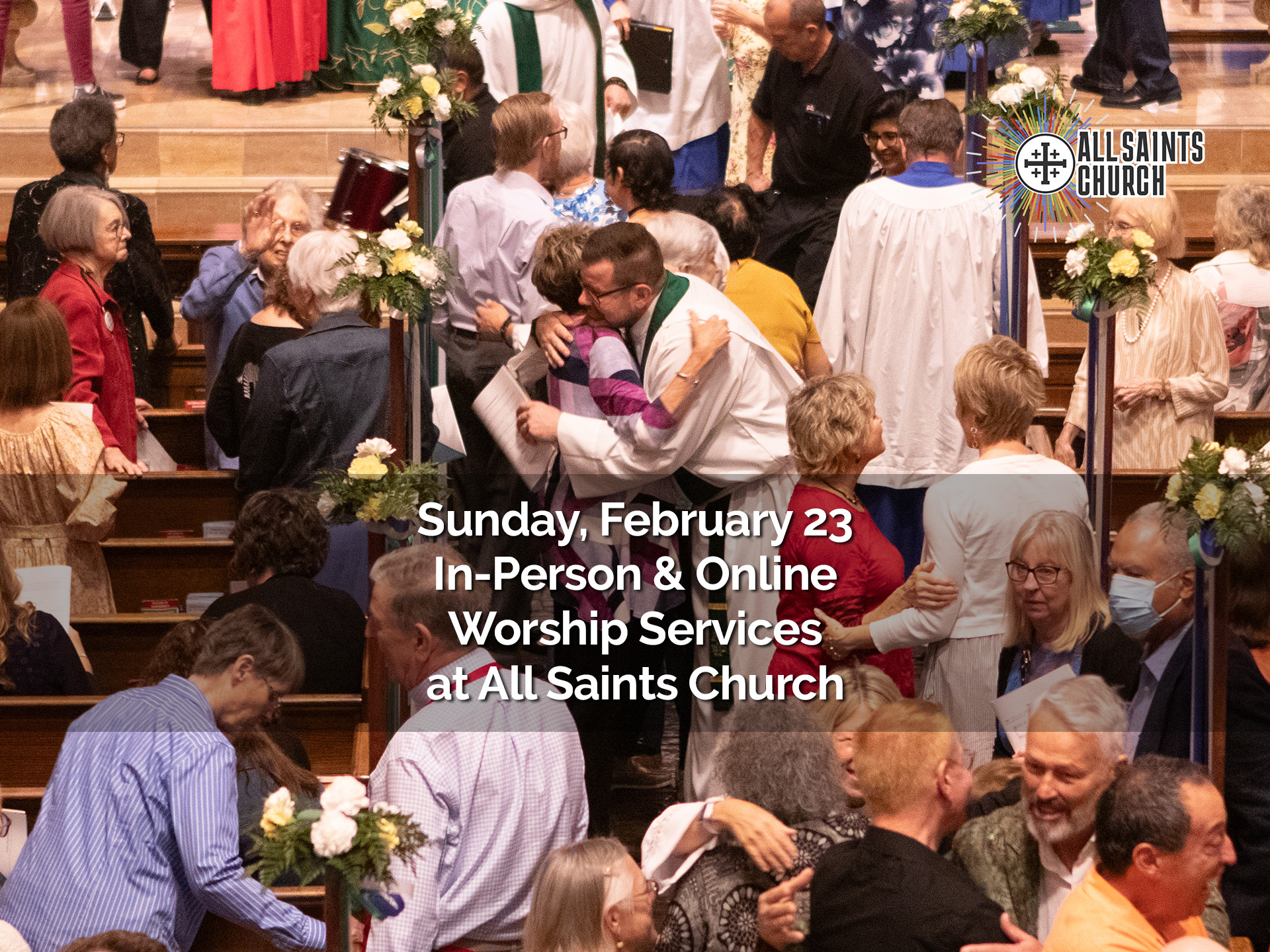The Gospel isn’t meant to be gulped down on Sunday morning, but gnawed on through the week so it really becomes a part of us. You’ve got to work at it, like a dog with a good bone! Here’s the Gospel for this coming Sunday — the Second After The Epiphany — with food for thought on what it means to actually see and serve each other. Gnaw away!
John 1:43-51
The next day, after Jesus had decided to leave for Galilee, he met Philip and said, “Follow me.” Philip came from Bethsaida, the same town as Andrew and Peter. Philip sought out Nathanael and said to him, “We’ve found the One that Moses spoke of in the Law, the One about whom the prophets wrote: Jesus of Nazareth, son of Mary and Joseph.”
“From Nazareth?” said Nathanael. “Can anything good come from Nazareth?”
“Come and see,” replied Philip.
When Jesus saw Nathanael coming toward him, he remarked, “This one is a real Israelite. There is no guile in him.”
“How do you know me?” Nathanael asked him.
Jesus answered, “Before Philip even went to call yo8u, while you were sitting under the fig tree I saw you.”
“Rabbi,” said Nathanael, “you’re God’s Own; you’re the ruler of Israel!”
Jesus said, “Do you believe just because I told you I saw you under the fig tree? You’ll see much greater things than that.”
Jesus went on to tell them, “The truth of the matter is, you will see heaven opened, and the angels of God ascending and descending upon the Chosen One.”
The Backstory – What’s Going On Here?
We jump out of Mark’s Gospel to John for one Sunday. This is the second of two early vignettes of Jesus calling disciples. Like the vignette immediately before it (1:35-42 … the call of Andrew and Peter), this one involves a pair of disciples … one (Andrew/Phillip) who is initially called by Jesus and then in turn brings another (Simon/Nathanael) to Jesus.
Two key characteristics appear in each story:
*In each story, the invitation to come to Jesus is the same “Come and see.” It is an invitation not into debate or theological discussion but to witness and relationship.
*In each story, the one who “comes and sees” is actually truly seen by Jesus. Simon is renamed Peter, and Nathanael is called “an Israelite in whom there is no deceit.” … to which Nathanael responds with a passionate vision of who Jesus really is “You are God’s Own! You are the Ruler of Israel!”
Jesus then paints a vivid and loaded picture of what Nathanael’s confession means. ” you will see heaven opened, and the angels of God ascending and descending upon the Chosen One.” This is a clear reference to Jacob’s ladder in Genesis 28:12. It’s crucial to remember that John’s Gospel was written after the destruction of the Temple, and the Temple was the link between heaven and earth … between God’s presence and humanity. The big question on everyone’s mind — and the question John’s Gospel answers — is “How do we relate to God now that the Temple is gone?” John’s answer — and Jesus’ answer here — is that Jesus is the new link between heaven and earth. The new Jacob’s Ladder. The new Temple. And Jesus continues to live on in the community of Christ. The community of Christ is now the link between heaven and earth.
A few things to chew on:
*Jesus calling Nathanael “an Israelite in whom there is no guile” is full of wordplay … particularly coming just before the reference to Jacob’s ladder. Jacob was an Israelite in whom there was a great deal of guile! He
was “the supplanter,” who tricked his elder brother Esau out of his birthright. Nathanael is the new Jacob, and his vision is of the new Jacob’s ladder … Jesus.
*Much has been made of Nathanael’s offhanded slam “Can anything good come out of Nazareth?” Whatever the source of his low opinion of Nazareth (and scholars have argued mightily about it!), what we know is that Nathanael was ready to dismiss Jesus sight unseen merely because of where he was from. But what is even more striking is how quickly Nathanael is redeemed from that error in judgment. Jesus is able to see him and know that offhand comment doesn’t define who Nathanael is. Jesus is able to see beyond Nathanael’s foibles and mistakes to whom he really is … and in so doing invites Nathanael to be a part of a life that changes everything.
Try This:
So often, we dismiss people and limit their potential to do amazing things. We do what Nathanael did at first and label and dismiss people because of exterior factors (how many versions of “He’s from Nazareth? Ugh!” are
there?). But we also fail to do what Jesus did with Nathanael … forgive people for initial missteps and see the image of God that is beneath the surface.
This week, take some time at the beginning of each day and think of one person in your life that you have assumed “nothing good can come from.” Why have you made that choice? Ask Jesus to help you see that person as Jesus sees them. Think about what inviting that person to live into a greater potential might look like. Pray for your relationship with that person, that it might be an occasion for the heavens to break open and the presence
of God to be revealed.
Write This:
Jesus says to Nathanael, “You’ll see much greater things than that.” When we start following Jesus, when we live giving ourselves away in love the way Jesus does, when we see every person as a beloved child of God – we begin to see amazing things. This week, in your journaling, write about some of the amazing things you have seen on your journey of faith.
Come and See
“Can anything good come out of Nazareth?”
“Come and see!”
One of the most dangerous words in the world is THEY.
THEY … THOSE PEOPLE … THEM.
Talking about people collectively is inevitable. We can’t just eliminate the third person plural from our language. But we must use it with great care — because it is powerful and dangerous.
When we say “they” or “those people” or “them” we are walking a tightrope. We are tempting ourselves to paint one another with a broad brush, to let our image of each other be defined by our assumptions and prejudices.
Nathanael did this. Philip told him about Jesus and his response was “What? One of THOSE PEOPLE?”
To which Philip gave an answer that was pure truth:
Come and see.
That is our message when we are tempted to dismiss with They or Those People or Them. Come and see. Look deeply into one another’s eyes as individuals. Actively seek Christ and the image of God in the eyes of one
another. Do not profile or dismiss. Gaze deeply.
Come and see.
This is exhausting work — and we tend to avoid it. Someone living with MS once told me not to be offended if she doesn’t look me in the eyes when we talk. She said that she has learned that looking into someone’s eyes is the single most taxing task for the human brain — and that if she’s having a bad MS day, she can’t do it because she needs to preserve her energy.
Come and see — Philip says to Nathanael. It’s not just a brief glance and looking away. It’s intense. It’s opening ourselves up to the reality of each other.
At the end of her sermon at the 11:15 service last Sunday, Lisa Sharon Harper invited us to look deeply into the eyes of the person next to us and see the image of God in them.
That is our call as the community of All Saints Church. To look into each other’s eyes and get to
know each other … seeking and serving Christ in one another.
That is our call as the community of All Saints Church To go out into the world and meet people there and to invite the city not just of Pasadena but of Los Angeles into this space. To look into the eyes of all sorts of people and seek Christ in them and ask how we can be drawn into service together.
Ours is not a faith of THEY, THOSE PEOPLE and THEM. Ours is a faith of intimate relationship. We grow in deeper relationship with God in Christ when we — like Peter and Nathanael — not only “come and see” but allow ourselves to be fully seen and intimately defined by Jesus.
That’s really what our communities of Christ are called to be. Communities of seeing Christ and being seen by Christ. Communities where we see the power of God’s love for us … and where we let that love define us and send us into the world to heal every bit of brokenness that is out there.
It’s seeing and being seen. It’s discarding “they,” “those people” and “them” language for the time and energy it takes to gaze deeply into each other’s eyes.
And when our eyes open wide, we can see that heavens are opened up, and angels are ascending and descending, and that God is not far but near, but here.
. . . . . . . . . . . . . . . . . . . . . .
Check out the rest of Sunday’s readings
The Lectionary Page has all of the readings for this Sunday and every Sunday – just click here.
Collect for Sunday: Pray this throughout the week as you gnaw on this Gospel.
Almighty God, whose Son our Savior Jesus Christ is the light of the world: Grant that your people, illumined by your Word and Sacraments, may shine with the radiance of Christ’s glory, that he may be known, worshipped, and obeyed to the ends of the earth; through Jesus Christ our Lord, who with you and the Holy Spirit lives and reigns, one God, now and for ever. Amen.
Want to read more?
“The Text This Week” is an excellent online resource for anyone who wants to dive more deeply into the scriptures for the week.
. . . . . . . . . . . . . . . . . . . . .
Gnaw on This is a weekly feature by Mike Kinman, Rector of All Saints Church, Pasadena



